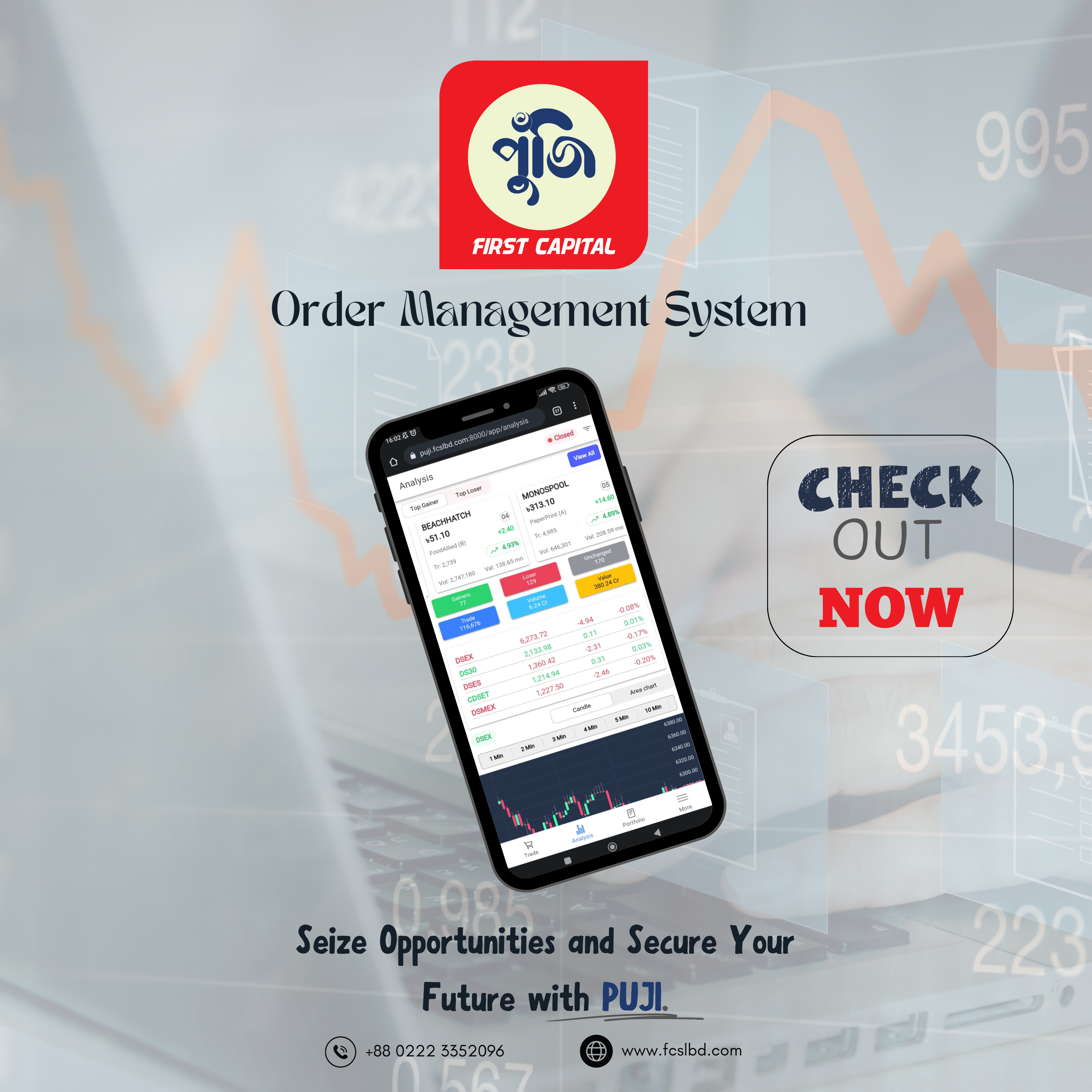Stakeholder says there have been no visible steps to improve the market despite high expectations
Summary:
August saw a 501% surge in foreign trading year-on-year
Net foreign investment dropped as sales outpaced purchases from November onward
Market reforms are ongoing, aiming to restore investor confidence by June
Foreign investment in 2024 dropped below 1%, lowest since 2010
Political chaos and macroeconomic challenges hinder market recovery and growth
Foreign investors in the country’s capital market have retreated once again, withdrawing their funds after a brief comeback following the ouster of the Hasina government on 5 August.
Initially, foreign investors showed optimism about potential reforms under the interim government, leading to increased activity.
According to Dhaka Stock Exchange (DSE) data, trading by foreign investors surged by 501% year-on-year in the first half of August, reaching Tk404.82 crore.
This positive momentum continued through the month, with total turnover by foreign investors reaching Tk812 crore. Of this, they purchased shares worth Tk565 crore while selling shares worth Tk246 crore.
The trend of buying persisted in September and October, with foreign investors purchasing shares worth Tk170 crore and Tk123 crore, respectively, while selling shares worth Tk166 crore and Tk34 crore.
Following the fall of the Hasina government on 5 August, both turnover and indices at the DSE saw significant gains, with the benchmark index rising by 786 points over the four trading sessions
However, optimism began to wane as macroeconomic challenges deepened, compounded by issues in the banking sector linked to corruption during the previous administration.
In November, foreign investors bought shares worth Tk165 crore but sold Tk200 crore, resulting in a net withdrawal of Tk35 crore. The pattern continued in December, with purchases amounting to Tk73 crore against sales of Tk96 crore, a net withdrawal of Tk23 crore.
Daily market data indicate that the figures of foreign investment have not improved in January.
“Dented confidence”
DSE Chairman Mominul Islam told The Business Standard that the floor price and currency devaluation “dented confidence” among foreign investors, with macroeconomic instability adding to the challenges.
He said capital market reforms are ongoing and expected to be completed by June this year.
Once these reforms are in place, he believes investor confidence will return. “Good stocks are now undervalued. If the reforms are implemented and the economy stabilises, foreign investors will return.”
The chairman also noted efforts to introduce new products aimed at attracting non-resident Bangladeshis to the stock market.
Saiful Islam, president of the DSE Brokers Association, told TBS that foreign investors were active on the buying side immediately after the fall of the previous government.
However, despite high expectations, there have been no visible steps to improve the market or rebuild confidence, leaving foreign investors cautious and mistrustful, added Saiful.
“Foreign investors are monitoring issues related to market reforms and macroeconomic factors,” said the market expert. “They are interested in investing, and it is now necessary to instill confidence that inspires hope.”
Foreign trades in 2024
According to DSE data, foreign investors increased their trading activity by 68% in 2024 compared to the previous year but reduced their net investments by selling more shares than they purchased.
The total turnover at the DSE in 2024 was Tk1,48,512 crore, up 5.28% from 2023, with an average daily turnover of Tk632 crore.
Within this, foreign trading accounted for Tk3,639.28 crore, marking a significant rise from 2023.
Despite the increased activity, foreign investors sold shares worth Tk1,955 crore while purchasing shares worth Tk1,683 crore, resulting in a net withdrawal of Tk271 crore from the market in 2024.
A short boost
Following the fall of the Hasina government on 5 August, both turnover and indices at the DSE saw significant gains, with the benchmark index rising by 786 points over the four trading sessions. On 11 August, the DSEX reached 6,015 points.
However, after a wave of share sell-offs and changes in the Bangladesh Securities and Exchange Commission (BSEC), the market began to decline. By 27 October, the DSEX had fallen below the 5,000 mark.
As of Tuesday, it stood at 5,202 points.
Syed Nasim Manzur, managing director of Apex Footwear, told TBS that foreign investor confidence in Bangladesh remains low due to political uncertainty, high interest rates, and rising business costs from frequent utility hikes.
Businesses also struggle with increased wages amid these high costs, he said, urging the government to address these issues to attract foreign investment.
Manzur pointed out that Bangladesh was once attractive to investors due to its low business costs, but rising expenses are pushing investors to peer countries like India, Indonesia, and Vietnam.
During a discussion on the economy on 18 January, Manzur remarked that both investor and consumer confidence are at historic lows.
“I have never faced such a difficult time in my 34-year business career,” he said at the event.
Foreign investment lowest among peers
Foreign investment in the stock market dropped below 1% last year, marking its lowest level since 2010 and lagging far behind peer countries.
DSE data reveals stark contrasts: Thailand led with 51% foreign investor participation in 2024, followed by Indonesia at 33%, Philippines 25%, Vietnam 18%, India 12%, and Pakistan 4%.
Ahsanur Rahman, CEO of BRAC EPL Stock Brokerage, a key firm for foreign investors, told TBS that foreign investors hoped the market’s issues would be addressed with improved compliance and governance after the fall of the Hasina government.
This optimism led to increased activity from both domestic and foreign investors, driving growth in trading volume and index value, he said.
“However, that enthusiasm has faded. Amid economic challenges and a deteriorating banking and financial sector, foreign investors have become inactive, selling shares to withdraw capital and remain on the sidelines,” he added.
DSE report on market
In its June 2024 annual report, the DSE noted that the challenging global environment and adverse local macroeconomic conditions continued to affect the performance of listed companies, resulting in a bearish market.
It highlighted subdued local investor activity, as high yields in government securities and elevated lending rates increased the cost of funding.
Foreign investor activity also remained low due to political and economic instability, the Ukraine-Russia war, the Middle East crisis, and tight global financial conditions.
As a result, both domestic and foreign investor participation was significantly reduced, with local investors contributing 99.12% to market turnover and foreign investors just 0.88%, the DSE said.
Previous trends
DSE data shows that in 2023, foreign investors reversed a five-year trend of continuous share sales by purchasing more shares than they sold.
That year they bought shares worth Tk1,115 crore and sold shares worth Tk1,050 crore, resulting in a net investment of Tk64 crore.
From 2018 to 2022, foreign investors consistently withdrew funds, with the highest trade volume since 2009 recorded at Tk11,448 crore in 2017.
After two years of decline, foreign trade volume dropped to Tk2,167 crore in 2022, before rebounding in 2024.
In December 2023, foreign ownership in Grameenphone stood at 1.58%, but by November 2024, it had fallen to 1%, and by December 2024, it dropped further to 0.98%.
A similar trend was observed in Renata PLC, where foreign shareholding decreased from 22.23% in December 2023 to 21.18% by the end of 2024.
Large investors sidelined
A senior official from a brokerage house, on condition of anonymity, told TBS that after the fall of the previous government, the new commission initiated reforms, forming a task force and imposing heavy fines to curb manipulation.
Although these measures were intended to restore market discipline, they instilled fear among large investors, pushing them to the sidelines and contributing to a market downturn, said the official.
The official also noted that political and economic uncertainty, compounded by political chaos over upcoming elections, has further discouraged foreign investors.
“The market is unlikely to regain momentum until the reforms take full effect,” he said, adding that foreign investors may become more active in buying new shares after companies release their six-month earnings.




